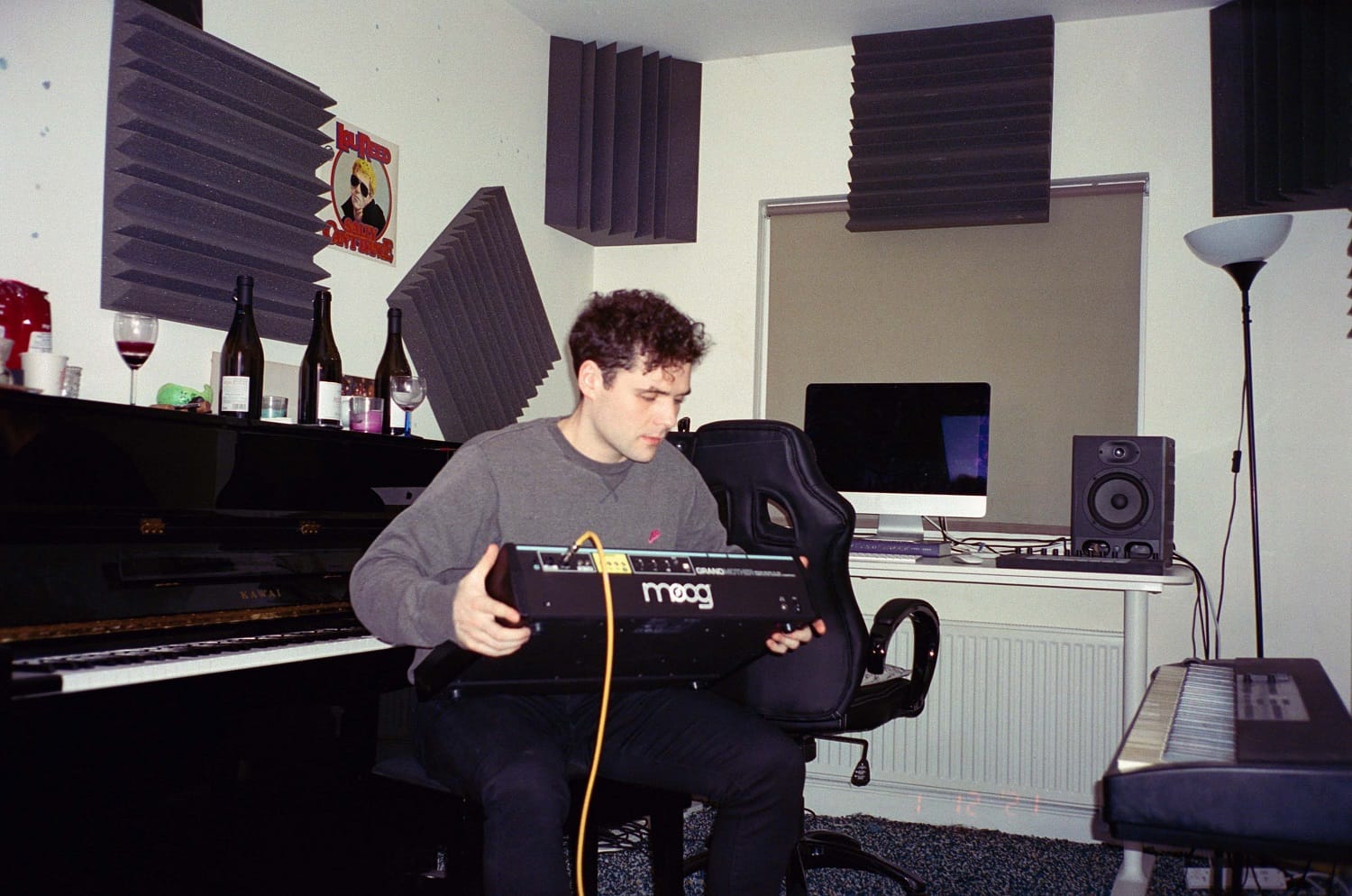Ruling sheds a small light on opaque intel-gathering on some citizenship seekers
An Garda Síochána “has developed strong links with other security services, particularly those with whom the State shares common threats to national security”, it says.
“In this dream world, Dulu wanders soundscapes that feel endless in every direction, each song resembling fragments of different half-remembered hallucinations.”

Sal Dulu wants to make music that encapsulates dreams. On his debut album Xompulse, the producer expresses our fascination with the images and sensations that run through the human psyche by disappearing into his own twilight fantasies and inviting us to join him in the serenity.
In this dream world, Dulu – real name Senan Magee – wanders soundscapes that feel endless in every direction, each song resembling fragments of different half-remembered hallucinations. There’s flickerings of nostalgia for memories that can’t quite be pieced together. Like dreams, Magee’s compositions are an experience that can feel fleeting yet remains endlessly fascinating once lucidity is regained.
If something about this intro sounds off, maybe it’s because you expect an album titled Xompulse to feature head-fracturing drill ‘n’ bass bangers and not the elements of ambient music, jazz, dubstep and downtempo that Magee actually incorporates. There are no night terrors here – the result is a pretty and graceful record, delicate to touch and soothing on the soul.
From Dublin, Magee has been visible in both the Irish and electronic music blog circuit for a while now. The title track of Xompulse was first released way back in January 2019, so the project represents a broad picture of his artistry. As much as I hate viewing everything through a Covid lens, it’s undeniable that a lot of new music is being influenced by the pandemic either in theme, the use of homemade recording techniques, or both. In contrast, Xompulse floats in an alternate dimension, timeless, no context required.
The album builds on Magee’s early singles, such as “Antasma”, from 2017, an early blueprint of the Sal Dulu formula. The track uses electronic drum pads, ambient textures and a prominent sample of what appears to be The Supremes’ pop-soul classic “Come See About Me” (maybe a cover of it) before the whole thing collapses into more rasping electronica, like a smoothly running computer becoming unexpectedly corrupted. Magee might argue that the song was too old or not thematically on-point enough to include in Xompulse, but it provided early evidence of his favoured techniques.
Let’s focus on the music that is here. The album opens with “Ariel Visions” and what sounds like the banging of a gong in a kung-fu movie, as if to announce Dulu’s arrival. These dramatics prove something of a red herring: from there the saxophones sweat, the strings swoon and the keys feel vast, crashing off the rest of the arrangement like the tide on a beach. The most obvious touchpoint is Moby, as Magee makes ambient electronica with tight vocal samples as the fulcrum to the epic sweep. This is orchestration to score the parting of seas or planets doing a cosmic dance.

Despite the grand scale of some of the songs, you’re never allowed to forget that Magee is a classic click-and-loop beatmaker. It’s easy to picture him dragging the jazzy piano chords onto his laptop interface on “She Belongs To Roth” before clipping them into a compact bar, or skinning an old soul number for the sample that forms the backpack rap-indebted “Girl”.
Even so, there are some extraordinary surprises. “Just Like Sonnenalle Blues” sounds like a scene in a movie when a cop wakes up in the middle of the night and looks out his window at the urban chaos they’ll soon be lost in. When I hear the song’s sad piano chords and 1980s noir guitar lead, questions swirl in the air that are intriguing to me. Questions like: what malignancy exists in Sal Dulu’s soul and how can I cure it? Music that expertly uses tones and textures can give off this sense of mystery – the best keeps you coming back to figure it all out.
Guess what: there are raps on this thing too. Magee teams up with two respected Richmond, Virginia, underground artists: Fly Anakin for cloud rap tune “Zumo”, and Koncept Jackson to spit over the sledgehammer drums of “B”. Most intriguing is the presence of the Atlanta-based staHHr on closing track “Buzzcut”. She’s probably best known for appearing on MF DOOM’s “Guinnesses” under the name Angelika. DOOM collaborators are extremely hard to get a lock on. That Dulu managed to snag her adds an extra level of intrigue to the project.
Still, none of the verses are more than solid. These are, in fairness, difficult soundscapes to rap over and the voices can sound isolated from the music, as if rapped acappella and simply pasted in. They do, though, add different ripples to the set, helping to ensure it never becomes one-paced.
Remember though, the guests are just tourists in Dulu’s subconscious – as Cobb told the intruding Ariadne in Inception, “These are my dreams.” It’s funny, melodies said to come to artists as they sleep are often glorified, explained only as bolts of genius from their subconscious. Sal Dulu has done something just as impressive – he’s escaped the other way, constructing a dream world to get lost in, as blissful an arena as you’ll find.